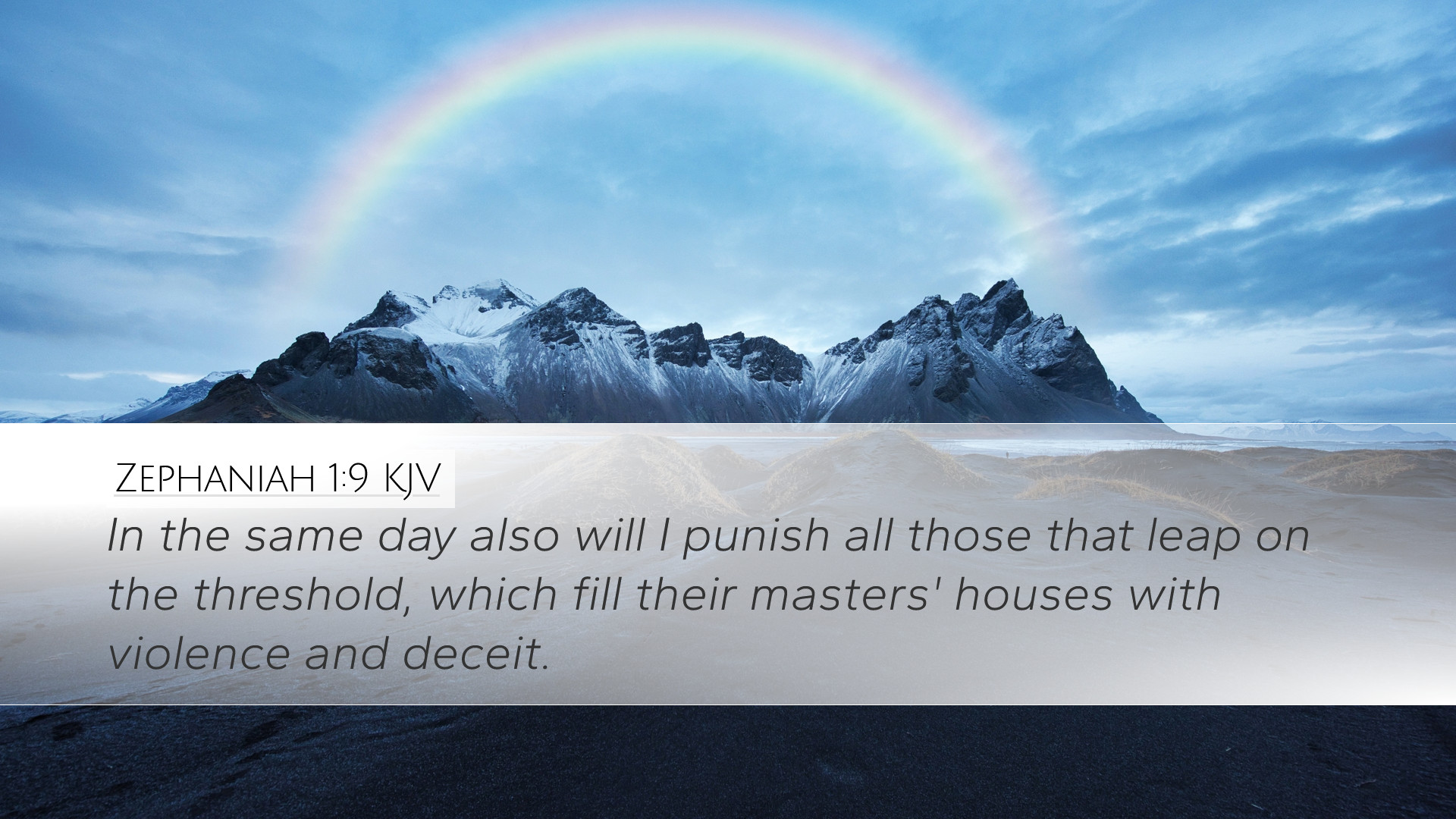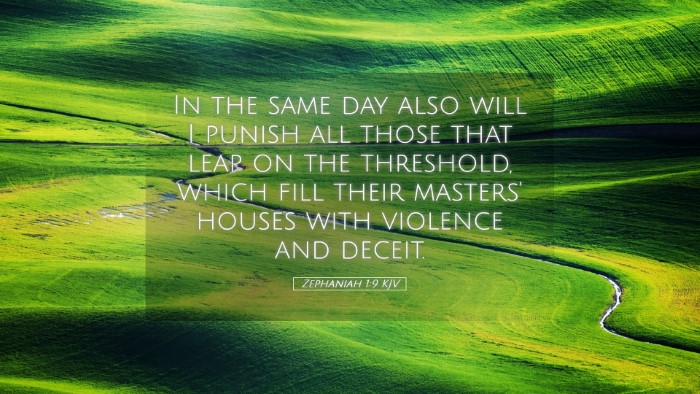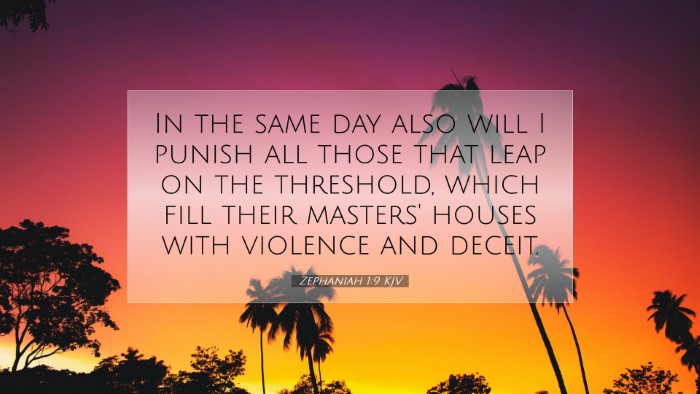Old Testament
Genesis Exodus Leviticus Numbers Deuteronomy Joshua Judges Ruth 1 Samuel 2 Samuel 1 Kings 2 Kings 1 Chronicles 2 Chronicles Ezra Nehemiah Esther Job Psalms Proverbs Ecclesiastes Song of Solomon Isaiah Jeremiah Lamentations Ezekiel Daniel Hosea Joel Amos Obadiah Jonah Micah Nahum Habakkuk Zephaniah Haggai Zechariah MalachiZephaniah 1:9
Zephaniah 1:9 KJV
In the same day also will I punish all those that leap on the threshold, which fill their masters' houses with violence and deceit.
Zephaniah 1:9 Bible Commentary
Commentary on Zephaniah 1:9
Verse Context: Zephaniah is one of the Minor Prophets in the Old Testament, addressing the impending judgment of God upon Judah for their idolatry and sin, as well as the surrounding nations. Zephaniah prophesies during the reign of King Josiah, highlighting the need for repentance and the consequences of disobedience.
Text of Zephaniah 1:9
"In that day I will punish all who leap over the threshold, who fill their masters' houses with violence and deceit." (NIV)
Summary of Insights
1. Cultural and Historical Context
Albert Barnes notes the reference to the practice of "leaping over the threshold," which was linked to a superstitious act associated with the worship of false gods. This act symbolized a deep connection to idolatry and pagan rituals that were prevalent in Zephaniah's time. The Prophet's mention of this custom emphasizes the sinfulness of the people, drawing attention to their ingrained practices that oppose God’s commandments.
2. Divine Judgment
Matthew Henry expounds upon God's declaration of judgment against those who engage in these practices, suggesting that it represents a spiritual rebellion against divine authority. He likens the act of leaping over thresholds to a willful rejection of God's laws, indicating the seriousness of such actions in the eyes of the Lord.
3. Symbolism of Violence and Deceit
Adam Clarke interprets the terms "violence and deceit," emphasizing that these behaviors are not merely social injustices but are indicative of a broader moral decay. He points out that these terms reflect an abandonment of trust and fidelity, not only in relationships but toward God as well. Clarke suggests that these traits signify the total breakdown of societal ethics, which ultimately leads to divine retribution.
4. Theological Implications
Matthew Henry reflects on God’s nature as just and holy, asserting that divine punishment is a necessary consequence of human sin. This commentary highlights the balance between God’s love and justice, offering a poignant reminder for theological discussions on the nature of God's character and the severity of sin.
5. Application for Believers
Albert Barnes applies this passage to contemporary believers, urging them to examine their own lives in light of God’s judgment. This call for self-examination is critical for understanding how cultural practices may contradict Christian values and lead to spiritual compromise.
6. Encouragement for Repentance
Adam Clarke encourages a return to true worship and reliance on God. He posits that amidst the warnings of judgment, there remain opportunities for repentance and restoration. Clarke’s insights convey hope and redemptive possibilities for those who seek to turn back to God.
7. The Bigger Picture of Zephaniah's Message
Matthew Henry conveys that Zephaniah's prophecy is not merely a warning of immediate judgment but also paints a picture of the ultimate vindication of God’s people. The call for holiness amidst judgment reminds believers today of the importance of maintaining their faith and integrity, staying true to divine principles even in the face of societal pressures.
Conclusion
In conclusion, Zephaniah 1:9 provides a rich tapestry of insight into the nature of sin, the seriousness of idolatry, and the inevitable consequences of turning away from God. Through the perspectives of Matthew Henry, Albert Barnes, and Adam Clarke, we glean not only an understanding of this specific verse but also broader principles applicable to our lives today. Believers are encouraged to reflect on their practices, pursue righteousness, and remain steadfast in their faith, knowing that God’s justice is tempered with opportunities for mercy.


